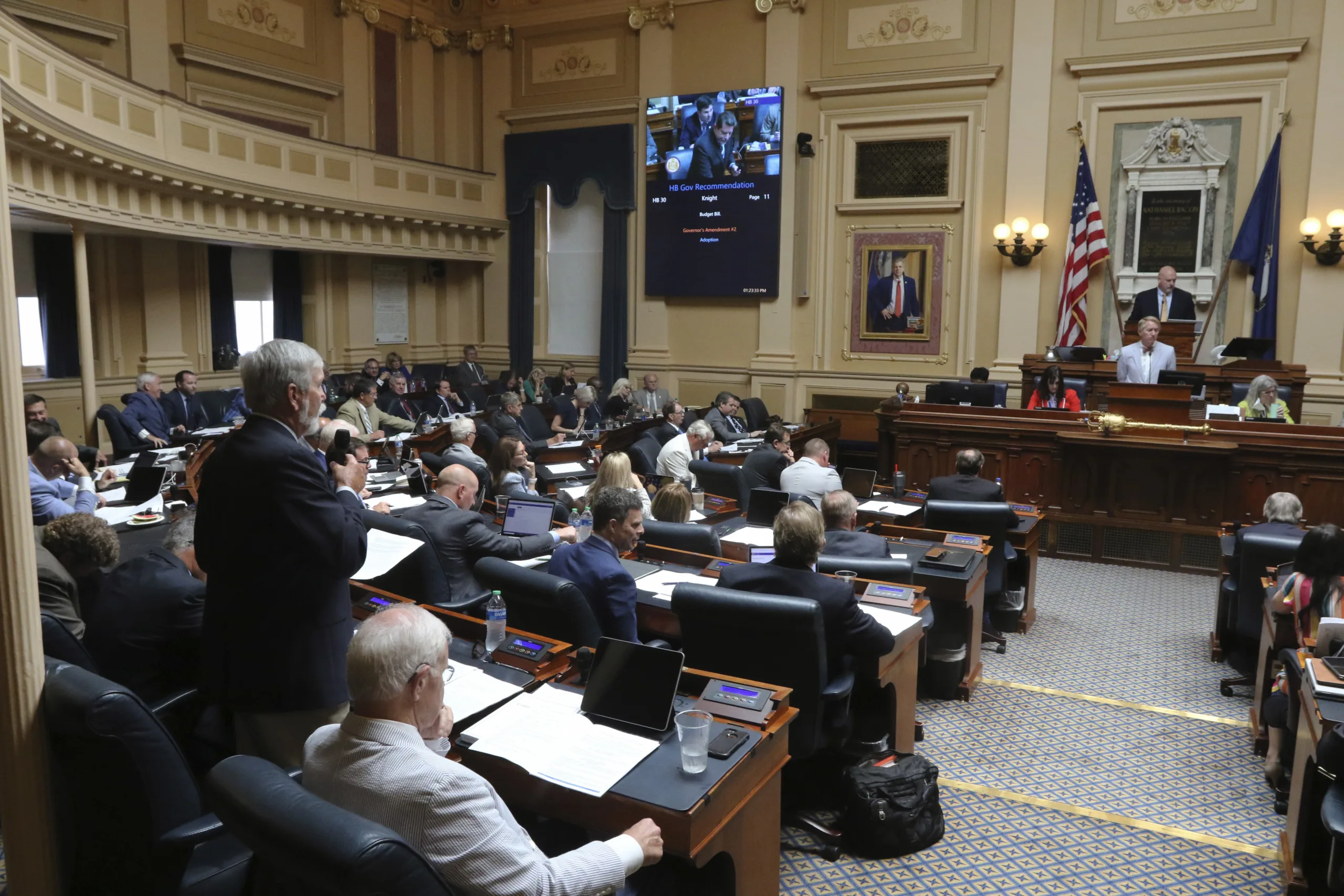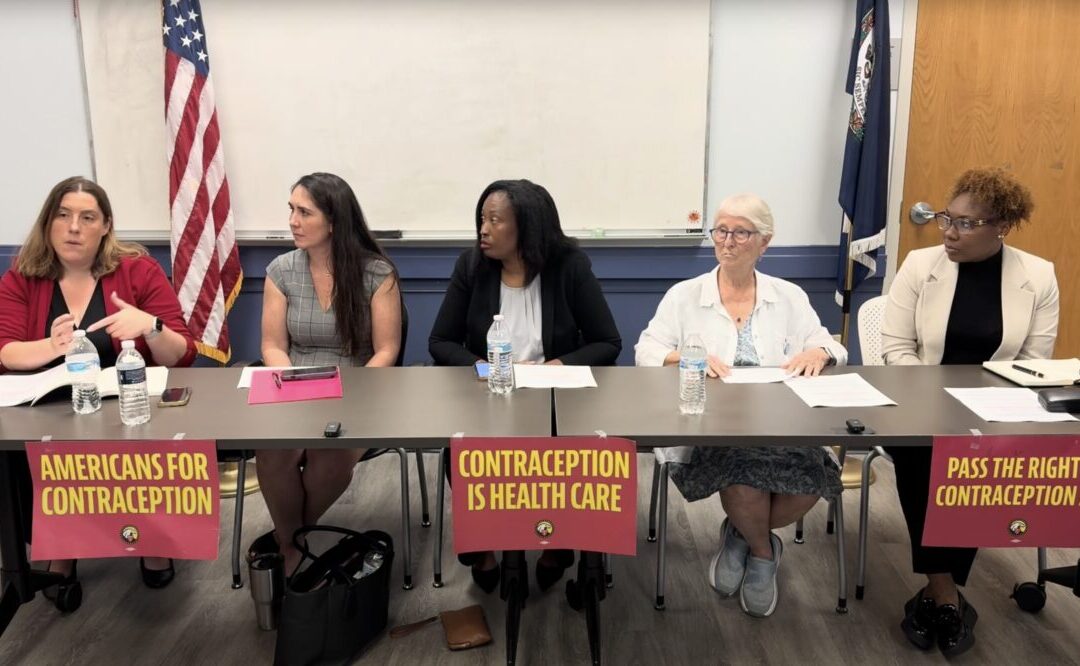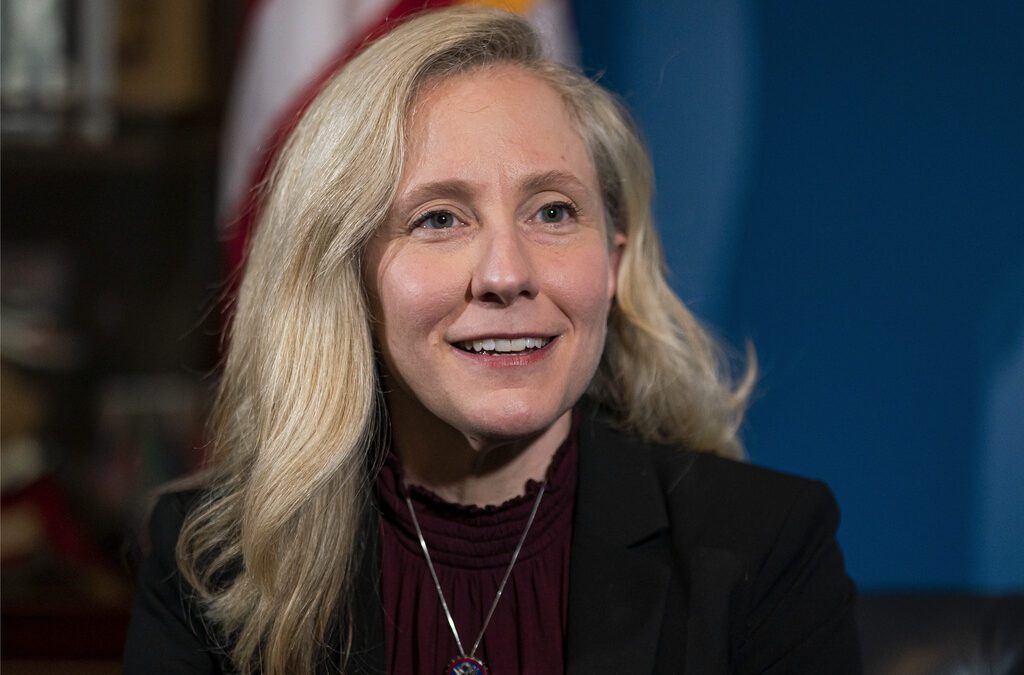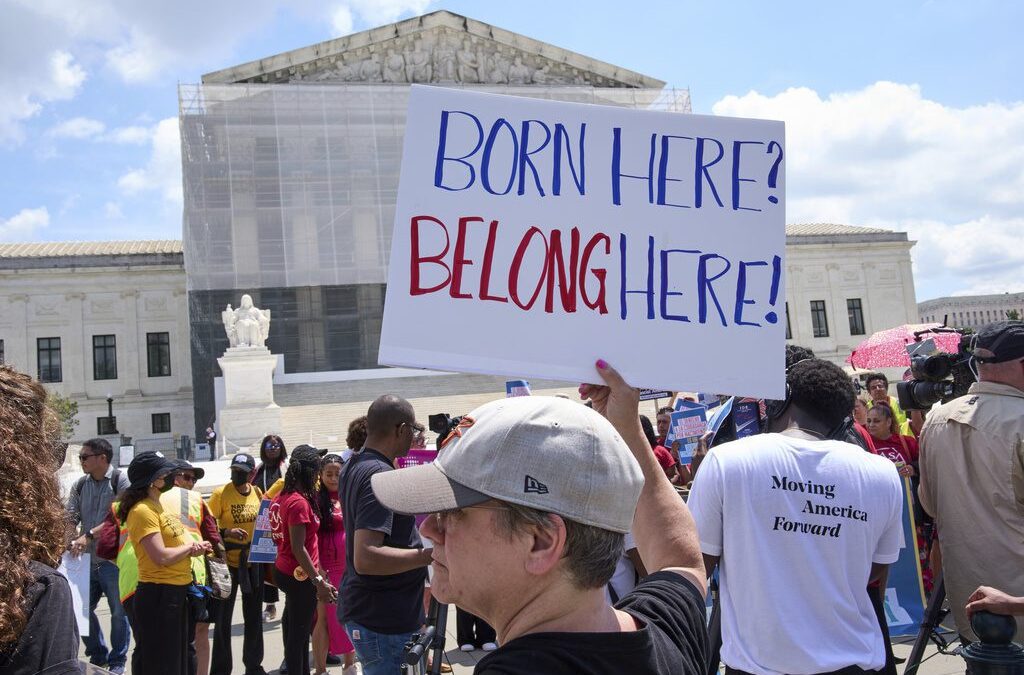
(AP photo/Steve Helber)
In this year’s fight for majority control of the General Assembly, abortion emerged as a key election issue in races for the Virginia House and Senate. Voters elected Democratic majorities in both the House of Delegates and state Senate, signaling to lawmakers that they want reproductive rights in the commonwealth to be protected.
Virginia is the only state in the South whose legislature hasn’t passed abortion restrictions since the US Supreme Court overturned the Roe v. Wade decision in 2022.
Gov. Glenn Youngkin pushed for a 15-week abortion ban over the course of the 2023 election cycle, suggesting that many efforts to expand access to and protections for abortion care may be vetoed. But not only is that threat failing to deter Democrats from working to protect reproductive rights, they’re also pursuing a method of protecting those rights that the governor can’t block or reject: an amendment to the state constitution.
The process for amending Virginia’s constitution is a multi-year one. Specifically, any proposed amendment must pass both chambers of the legislature in two consecutive years, but those years must have a state (odd-year) election in between. Then, the amendment would appear on the ballot in the subsequent election, and voters would have to approve it. If the proposed amendment is ratified at the ballot box, then it becomes a part of Virginia’s constitution.
Functionally, this means that the Democratic majorities in the House and Senate would have to pass a constitutional amendment protecting abortion in the 2024 or 2025 General Assembly session and then again in the 2026 session. Only then would the amendment appear on the November ballot in 2026.
Obviously, absent a dramatic change in Republicans’ position on reproductive rights in the interim, Democrats would have to hold their majority in the House of Delegates in the 2025 elections for this plan to succeed (the Senate won’t be on the ballot again until 2027).
Democrats attempted to start the process of approving a state constitutional amendment protecting reproductive rights in this year’s legislative session. It passed the Democratic-majority Senate but went on to die in a GOP-controlled House committee.
Pro-reproductive rights constitutional amendment legislation for the 2024 session has already been introduced by Democrats in the House of Delegates and the state Senate. The Democratic majorities in both chambers are virtually certain to pass them, completing the first step in the three-step amendment process.
“Throughout the campaign cycle we told Virginians that a Democratic majority meant that abortion access would be protected in the Commonwealth,” said House Majority Leader Charniele Herring. “It has become all too clear that without constitutional protection, access to reproductive healthcare is at risk for the Commonwealth.”
But Democratic lawmakers aren’t waiting for 2026 to expand reproductive rights protections in the last state in the South where abortion is meaningfully available.
Democratic Sen. Barbara Favola, who represents part of northern Virginia, is seeking to protect folks from other states hostile to reproductive rights by introducing legislation aimed at shielding those who travel to Virginia to access abortion care and those who assist these efforts from other states’ attempts to punish them.
Senate Bill 15 – which is being co-sponsored by eight other Democrats – would prohibit Virginia’s governor from recognizing demands for extradition of any person charged with criminal violations of another state’s anti-abortion laws. This prohibition applies not only to those who obtain or assist with obtaining abortions in the commonwealth, but also to anyone who violates a state’s anti-abortion law in that state and then seeks refuge in Virginia.
“We are now a destination state,” REPRO Rising Virginia executive director Tarina Keene said in an interview. “And we want to make sure that we keep it that way.”
When asked about her bill, Favola said she wasn’t aware of anyone currently facing extradition for accessing or assisting with abortion care in Virginia, but she stressed the importance of being proactive.
“I don’t want to wait until situations happen, and then you’re like, ‘Gee, I wish we’d had a law on the books,’” she said.
The measure is likely to pass the Democratic-majority legislature, but it will inevitably face the obstacle of Republican Gov. Glenn Youngkin’s veto pen. Youngkin, who spent millions of dollars in November’s election promoting his 15-week abortion ban, has given no public signal that he’s received and understands Virginia voters’ message in support of reproductive rights.
While many bills are yet to be filed for the 2024 General Assembly session, which begins on Jan. 10, Favola is already sponsoring another measure intended to not only protect Virginians’ reproductive rights, but also their online privacy.
Senate Bill 16 would prohibit authorities from using search warrants for personal menstrual health data stored on an electronic device or online.
The increasing criminalization of abortion across the country has exposed major gaps in legal protections for health information. Health privacy in the post-Roe digital age is fraught as prosecutors seeking to enforce anti-abortion laws are free to go after reproductive health data in mobile apps, where it is unprotected by federal law. According to a 2019 Kaiser Family Foundation report, about 30% of women report tracking their fertility or menstrual cycles on the Internet or on phone apps at least occasionally.
Favola introduced the same legislation in the 2023 legislative session, where it enjoyed broad bipartisan support as it passed the Democratic-majority Senate.
However, as the House of Delegates began considering the measure, the Youngkin administration came out in opposition, with one Youngkin official telling a subcommittee that they “believe [it] should continue to be the case” that “any health information or any app information is available via search warrant.” The GOP-controlled committee killed the bill.
Meanwhile, at least one Virginia Republican is undertaking a devious effort to undermine patients’ rights and wellbeing when it comes to accessing not only abortion care, but myriad other types of medical care.
House Bill 8, sponsored by Del. Lee Ware, is benignly titled the “Medical Ethics Defense Act.” It permits any medical professional, healthcare institution, or health insurance provider to refuse to provide “any medical procedure or service” that conflicts with their “moral or religious beliefs.”
Services patients could be refused go far beyond abortion; doctors, nurses, and pharmacists could refuse to provide contraception, sterilization, gender-affirming care, and more.
In fact, Virginia already has a law allowing doctors with “personal, ethical, moral, or religious” objections to refuse to provide abortion care.
Ware’s bill extending these medical care refusals to virtually any healthcare service could result in dangerous discrimination against patients. Civil liberties, LGBTQ, and reproductive rights organizations warn that bills like Ware’s are a back-door way to restrict the rights of women, members of the LGBTQ community, and others.

At a Virginia roundtable, advocates warn contraception rights are at risk
The event spotlighted Virginia’s stalled Right to Contraception Act and the broader fight against policies that could strip thousands of Virginians...

In her own words: Why this Texas physician now helps women in Virginia
Dr. Lou Rubino is just one of many physicians who’ve left Texas as a result of the state’s multiple abortion bans—laws that prevent doctors from...

Ghazala Hashmi speaks out: ‘I’m so thankful my doctor could save my life’
The Democrat running for lieutenant governor of Virginia reveals she had two dangerous miscarriages—and pledges to protect reproductive rights for...

Spanberger makes reproductive rights a cornerstone of her run for governor
She's pledging to defend contraception access and expand abortion protections. Virginians got to learn a little more about the Democrat running for...

Supreme Court limits nationwide injunctions, but fate of Trump birthright citizenship order unclear
WASHINGTON (AP) — A divided Supreme Court on Friday ruled that individual judges lack the authority to grant nationwide injunctions, but the...

Several hospitals in rural Virginia are at risk of closing if Trump’s ‘big beautiful bill’ passes
Studies reveal that at least half a dozen rural hospitals and health centers in Virginia will be forced to close their doors if the Trump...





